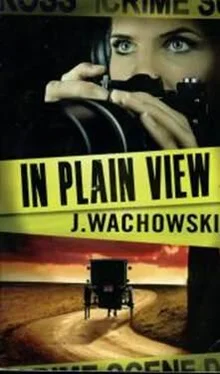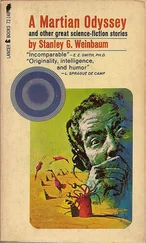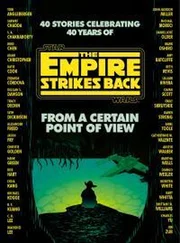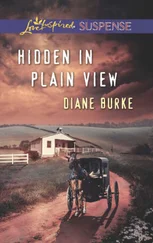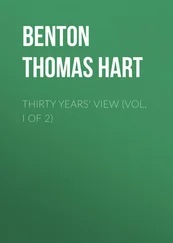Ainsley went ahead and put the camera back on his shoulder. “This isn’t privileged info, is it, Captain? Could I get one more shot? I’m not sure about the last one.”
The captain gave him the Big Man’s affirmative. “Tommy and Pat rode the ambulance together. Both of them are…were paramedics-EMS.” He sighed and stepped back. “That all you need to know?”
I smiled some more. “Were they friends?”
“Yeah, sure. Pat had been here a while already when Tommy got hired. Kind of took him under his wing. Tommy was small for a firefighter, you know. Some of the boys had trouble with that at the start. But he was a good man. Fearless. He’d do things nobody else would, you know?”
“Yeah. Sure.” Fearlessness is the first requirement of unbalanced competition. “Tom ever go into a fire?”
“Oh, yeah. Did it not one month ago. House fire. Got a sticker in the window, says there’s a kid in there. I’m about to call for volunteers, Tommy’s already suited up. The guy had stones, I’m telling you. He came to us better trained than most of those babies out of fire school, ’cause he’d worked VFD for the Amish. He knew fire. Unafraid.”
“How does it work out there, if there’s a fire on Amish land?”
“If? Shit, they get them all the time. They’ve got barns full of sawdust and kerosene lamps. They live in wood buildings and use candles. And wood-fucking-stoves! I’m surprised there aren’t more fires out there.”
“Do you get a lot of calls out there?”
He pursed his lips and shook a no. “Most of them are too isolated. By the time we hear about it, not much we can do. If it’s bad and it’s not too far out-and somebody calls us-we’ll send a pumper. That’s what they usually need. Sometimes, a guy in full gear will go in after someone. The Amish VFD don’t use air tanks.”
“Why?”
“Mask won’t fit over the beards.”
“How’s somebody do that?” Ainsley piped up. “How do you actually walk into a fire, even with a tank?”
“Most of the good ones, they think about it ahead a time. Get it set in their head, who they’re going in for-their wife, their kids, their mother.” The captain leaned back against the shiny fire truck, just another old salt waxing poetical. “Tommy had that and something else. He was the kind of guy who liked a test.”
I cocked my head and wrinkled my brow, keeping my voice off the recording. My face said it all, explain that.
“He was always setting tests for himself. Asking how many runs did that guy do? Pushing himself. The other guys on his shift, they saw right away he was a man who’d do the job. That meant a lot to him. Tommy cared what the guys thought. That letter from the cop-” Captain frowned, his jowls shaking with discouragement, “-knowing what people were thinking about him, after that letter, it messed him up. Maybe just about the worst thing could’ve happened to him, you know?”
“What did people think about Tommy,” Ainsley asked before I could, “after the letter?”
The captain had warmed up. He seemed almost relieved to tell his side of the story. Sometimes that happens. Usually, it’s where you find a guilty conscience.
“Hell, they thought he was a pervert! All this time, Tommy was never anything but a paramedic and a firefighter-a damn good one-but he seemed to have no life, no…urges-you know? He was a robot, a shiny robot. That’s how he got his name,” one side of his mouth crooked in a half-forgotten smile of genuine fondness, “guys called him Tinman.”
“Tinman?” I repeated, hoping to draw out more detail.
“From The Wizard of Oz? ” Ainsley prompted. “The Tinman had no heart.”
“Thank you. I get it now,” I ground out before turning to the captain to ask, “So your Tinman got busted for copping a feel on Dorothy?”
“Can you believe?” The captain opened his hands, all shocked innocence. “We were pretty surprised. He caught some grief about that, too.”
“Any idea who the girl was?”
“He never talked about her.”
Ainsley tried again. “Um, Captain? What sort of ‘grief’ did the guys give Jost, exactly?”
The captain waved it off. “No more than the usual. Few jokes. Put stuff in his locker, you know? Just grief.”
Just grief.
“How did Pat handle it?” Ainsley asked.
“What?” The question startled him. He was suddenly self-conscious, trying to remember how much he’d said.
“How did Pat handle Tom’s trouble?” I said. “You mentioned they rode the ambulance together.”
“Oh, they were fine mostly. Yeah. No problems. They had words now and then, maybe, like anybody working together. Nothing unusual. I’m sure it was a coincidence they argued the before-” The words came to a sudden halt. He turned his shoulder to the camera as if he’d forgotten something behind him. “Listen, I’ve got to get back to work now.”
“You think Pat might be willing to talk to us?”
“No. Can’t help you there. Against department regulations.” The captain was back in charge. He held up a hand, like a crossing guard warning of a stop. “That’s all now.”
“Anyone else you know I should talk to? Any other friends of Tom’s?”
“No. Nobody-except that school teacher. He used to go see her, have Sunday dinner or something. That’s it.” He stepped back, both hands up now as if he’d push us away if we tried to follow him. He backed up, two steps, turned and hustled off into the cavern of the firehouse.
“Thanks,” I called.
“That was weird,” Ainsley summed up, as the camera came down.
“That, my boy, was not weirdness. That was guilt.”
2:40:31 p.m.
“I don’t know if this is such a good idea,” Ainsley said again.
“I heard you the first time.”
Traffic was a mess. We crawled past town hall for the second time. It was smack in the center of the main drag. From the front, it looked like the live location shots used half a century ago for Mayberry, R.F.D. Wide stone steps led to a columned portico. Doors tall enough to accommodate NBA superstars. Surrounding the building was a park that extended a full city block behind the place. As we circled the area looking for a place to park, I could see banners and booths advertising for the animal shelter, the art league, Republicans and various other gun nuts.
“What is all this?”
“City’s celebrating the 150th anniversary of incorporation,” Ainsley said. “They’ve been planning it for two years. It’s a pretty big deal.”
“I’ll bet.” I felt a sudden whoosh of relief, as I realized how close I’d come to being ordered to do a story on sesquicentennial weekend for network television. All due respect to Charles Kuralt.
“There’s produce and animals in that big tent, like a mini state-fair market. City hall’s open for tours. Carnival rides in the Catholic church parking lot. I heard there’ll be Amish here for the market. I figured that would be the place for us to get those filler shots.”
Not bad; the boy had come through with a plan for getting the Amish on camera. However, his parking karma was the pits. Even the spots reserved for Town Hall Business Only were taken by huge Lexus-style sedans straddling two spaces. Damn lawyers.
“Maybe we should stick to the sesquicentennial party,” Ainsley repeated. “Leave Sheriff Curzon alone for a while?”
Here in the boondocks, the county seat was also the sheriff’s palace. So it just so happened that Curzon had an office in the old downtown town hall courthouse; although the jail itself was in the modern extension grafted onto the back of the building.
“We’re here anyway. We need to ask about the letter.” I tried to keep the edge out of my voice. I like my work. I like asking people hard questions. “Don’t worry. Curzon’s going to get a big kick out of seeing us again. I promise to make every effort not to piss him off. All I want is five minutes of clean interview with the letter-writing cousin,” I dreamed aloud. “Park right there.”
Читать дальше
